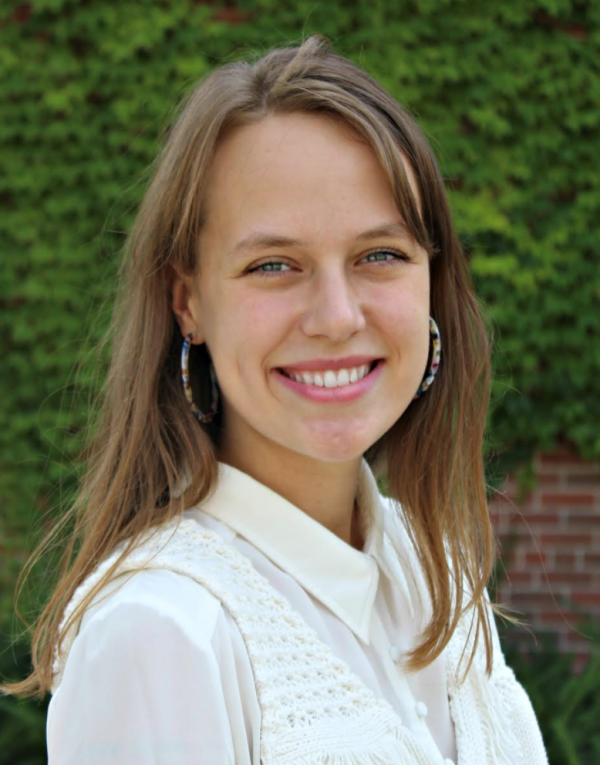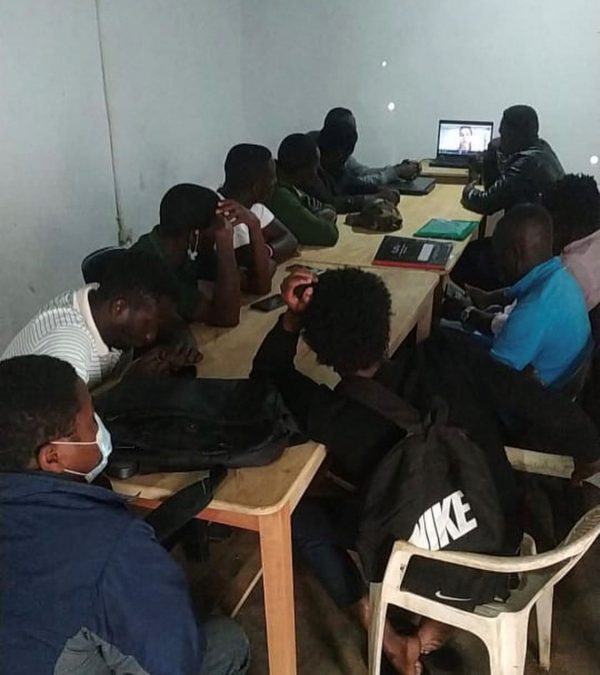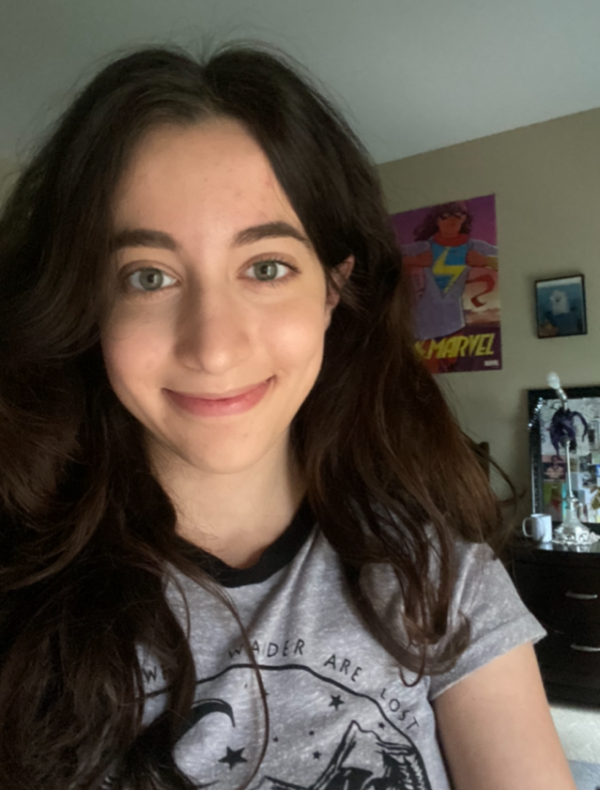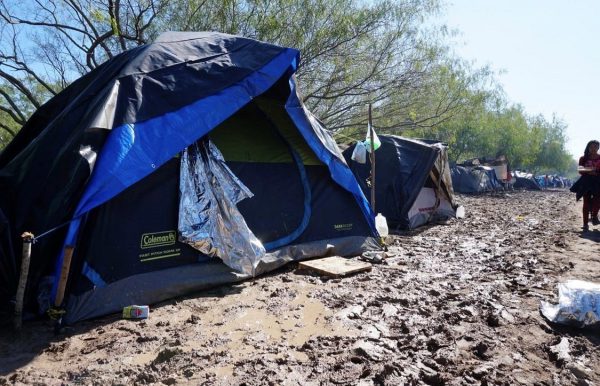
at Kalamazoo College. The organization has spread to other
college campuses and expanded into a nonprofit organization
called Refugee Outreach Collective. It’s an organization that
embodies the spirit of Human Rights Day every day of the year.
The United Nations can count on a Kalamazoo College student group along with its networks and outgrowing nonprofit organization to embody the spirit of Human Rights Day—which is every December 10—on any day of the year.
The U.N. observes the day to mark the anniversary of the General Assembly adopting the Universal Declaration of Human Rights (UDHR) in 1948. The declaration proclaims a series of inalienable rights to which everyone is entitled regardless of one’s race, color, religion, sex, language, opinions, national or social origin, property, birth or other status. According to the U.N., it’s the most-translated document in the world given that it’s available in more than 500 languages.
This year’s theme for Human Rights Day is “Equality: Reducing Inequalities, Advancing Human Rights.” Equality includes addressing and finding solutions for deep-rooted forms of discrimination that have affected the most vulnerable people in societies including women and girls, indigenous peoples, people of African descent, the LGBTQ community, migrants and displaced people, and people with disabilities, among others.
Within those groups of vulnerable people, those who face displacement have advocates in the Refugee Outreach Collective (ROC). The group, first organized as Refugee Outreach Kalamazoo at K in 2017, has since grown to seven campuses in Michigan—including Western Michigan University, Grand Valley State University and Michigan State University—and has even become a full-fledged nonprofit organization with national and international reach.
Emily Worline ’19, who is now in law school at Case Western Reserve University in Cleveland, was the founder of ROC at K and still carries out official duties as the full organization’s chairperson. She’s been inspired to extend her work with ROC as a result of witnessing first hand the conditions at refugee camps around the world.

the Global Classroom program offered by Refugee
Outreach Collective.
“The unifying factor at all of these camps is that no one wants to be there,” Worline said. “ROC works to shake the narrative that encampments are normal places to house people by organizing advocacy efforts and leveraging networks to alleviate the injustices people face while living there.”
In staying involved, Worline oversees ROC’s Global Classroom, a program that helps displaced individuals from the Dzaleka Refugee Camp in Malawi, Africa, get access to university-level educational opportunities through digital courses at Michigan campuses, such as Northern and Central Michigan universities, while offering one-on-one tutoring assistance. The courses combine theory and practice to create space for students to challenge themselves intellectually and learn skills. The first cohort of students is working to receive their associate’s degrees.
“One hope is it will bolster their asylum claim and provide a better chance to resettle somewhere,” Worline said. “Oftentimes, when people are able to prove they have network connections, that can also help the process of resettlement. The other hope is that they can get a job in Malawi with a recognized, accredited associate’s degree.”
Currently at K, ROC amplifies narratives involving migrant and displaced communities through alliance and relationship building. In other words, it collaborates with local organizations in its efforts to make the Kalamazoo community a more welcoming and inclusive place for students and families of diverse backgrounds. Maddy Harding ’22 serves as the organization’s president.

chapter of the Refugee Outreach Collective, which is an
organization that embodies the spirit of Human Rights Day.
“We have the chance to work directly with people at refugee camps overseas, but additionally, we’re able to have volunteer programs that help recently resettled refugees in the Kalamazoo area,” she said. “I think that’s pretty unique. When I first started with ROC, we had a family partnership program in which I would go into recently resettled refugees’ homes and help out the family in any way I could. I’ve learned how to interact with people who have cultural differences from me and I love that.”
One of these programs is the Homework Champions Tutoring program, which was developed in partnership with K’s Mary Jane Underwood Stryker Center for Civic Engagement (CCE) and the local ROC. The tutoring benefits displaced students in Kalamazoo Public Schools. Katia Duoibes ’23, a civic engagement scholar, helped the program start virtually during the pandemic.
“There previously was an afterschool program that I joined at Maple Street Middle School with Emily Worline,” Duoibes said. “When the pandemic hit, I was close with all of those students. I was contacting them and we were still working together virtually because all of their support systems and the support they received completely stopped. That spring, it was me and some other tutors who were doing that program just informally, helping them virtually with their homework.”
That effort continued through fall 2020 as she and Worline reached out to Samaritas, a Michigan social services nonprofit, which helped ROC connect with more resettling refugees. Afterward, about 20 tutors were paired with students who needed help through winter.

The program kept growing when Duoibes and Worline later connected the local ROC and Western Michigan University Professor of Educational Foundations Dini Metro-Roland to make the tutoring a service-learning component for the professor’s introductory education course, allowing 50 WMU students to join their efforts.
“Emily and I quickly realized that we needed a lot more administrative instructional support to keep the program growing and improving, so I was connected with the CCE,” Duoibes said.
CCE representatives including Associate Director Teresa Denton were ecstatic to add this program to the its previous initiatives working with the English as Second Language programs at Kalamazoo Public Schools. Now, Duoibes and Sydney Lenzini ’24, another civic engagement scholar, are working to restart the tutoring program’s in-person components.
“I’m inspired by educational equity, especially in public education,” Lenzini said. “Growing up in Chicago, I saw very unequal opportunities in the public-school system. Some kids got a lot of resources and others didn’t. I feel that can be internalized, and then create a lot of problems down the road. In the realm of public education equity, I feel like all students can succeed. Some students just need different support systems, and public-school systems often can’t or don’t want to provide those supports. I feel education is powerful. I think addressing educational inequities is a big step because education and access to it is like freedom.”

The CCE will couple its efforts with the Homework Champions Tutoring program with a service-learning course at K next term that will help more KPS students whose families are new to Kalamazoo. Plus, the ROC nonprofit will continue its international outreach with open-to-the-public events and fundraising for the sake of advocacy, outreach to people subjected to poverty and socio-political constraints such as refugee camps, and connecting individuals to job opportunities, internet access, healing circles and more through its existing networks of people and organizations.
“ROC’s biggest focus right now is on education,” Worline said. “We’re opening doors to making educational spaces more accessible. With every camp I visit, whether that be at the U.S.-Mexico border, in Greece and Serbia, or in Malawi, it’s very obvious that displaced people are being pushed to the very margins of society. They’re excluded from participating in various political processes. They’re excluded from attending college. Their movement is restricted. And to me, the idea of just excluding an entire 84 million people from the rest of society is a huge violation of human rights. I think ROC efforts are placed in reversing that and trying to make it so people aren’t so excluded.”

refugee camp at the U.S.-Mexico border.
